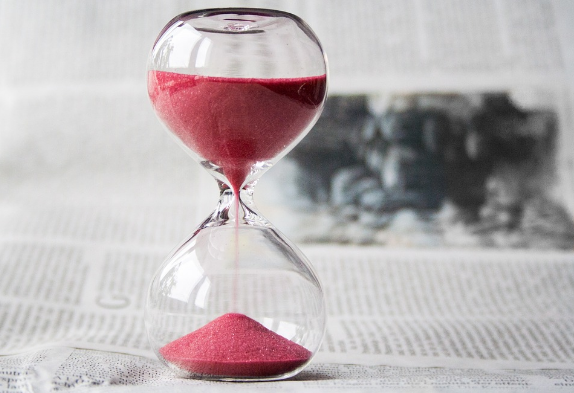PERSONAL DEVELOPMENT
Patience Is One Key To Success
Published 3 years ago on June 15, 2015
By Brian Robben
There are many keys to success, and patience is one of them.
But people want everything to happen in an instant. If we walk in a building and the Wi-Fi isn’t super fast, we get annoyed. If our text message or Snapchat takes longer than two seconds to send, we become frustrated and impatient.
The point is that our culture expects results right away. And our surrounding gadgets, systems, and services are only moving quicker to meet our expectations.
For example, restaurants like Chipotle, McDonald’s and Taco Bell are testing a delivery system, so the customer can get their food as quick and convenient as possible. Amazon is testing delivery drones to expedite transportation time. If attainable, we wish our order would arrive the nanosecond after we click purchase.
While I’m all for convenience and efficiency, I believe this habit of expecting instant results is dangerous for our future. In wanting everything to happen instantly, we lose patience to hold out for more-fulfilling opportunities and dreams.
Let me explain why patience is the key.
Why Impatience Is Dangerous
When we get instant results and convenience in some parts of our life, then we expect other areas of our life to work just as quick and easy. But, this mindset causes problems when something doesn’t happen as we plan it. It also is dangerous when we don’t take a task on because it seems too difficult, or appears too long to complete.
First, if something happens outside of our control, then we commonly create unnecessary stress for ourselves and lose mental focus.
For example, take the scenario where we plan on getting to work at 8:00am, but traffic is slow and causes us to arrive late. An impatient person may allow the negativity of traffic to carry over as they act rude to their co-workers and disrupt their concentration all morning. One external disruption and they can’t act or think straight.
Also, if a task appears to be too difficult or long to finish, then we usually choose not to do it because of our desire for instant results. So we regularly settle for the shorter and more convenient path.
For example, many people don’t consider careers that require grad school because they don’t want to go through the extra years of schooling. I’m confident that thousands of people who would be excellent doctors, lawyers, dentists, and other professions miss out on a fulfilling and satisfying career because of a short-term mindset against more education. It’s a shame.
For another example, many people say they want to be rich. But, they’re unwilling to take the necessary steps to obtain wealth, because they aren’t patient. These same people say investing in the stock market “takes too long.” They would rather spend their money shopping to feel the immediate happiness of buying something new (which goes away pretty soon after the purchase). Or their impatience gives them over to the get-rich-quick schemes that never work.
There’s a better solution to success in life, and it’s called being patient.
Patience Is Key To Satisfaction
As I wrote in the post Why Talent Is Overrated, the super successful people (in any field) push through the difficult work, and do it for 10-plus years. Meaning these excellent performers have the patience to get better each day, week, year, and decade. They wouldn’t achieve their success if they were too impatient to practice their craft.
Also, controlling your psychological state for patience gives you more opportunities. A patient person will have more time to consider different solutions to the assignment, contact people who can possibly help, and put in a better effort for a higher-quality result.
In contrast, if you’re impatient, you’re more likely to do the least amount of work just to be finished. Or you might complete a project how it’s always been done, not spending anytime to consider more creative and efficient operations.
From my experiences using patience, the end result is almost always better and more personally satisfying.
How To Practice Patience
Since impatience comes from being upset things aren’t going how you want or how quick you want them to, it’s all ‘I’ focused. Change your perspective to practice patience by thinking about the subjects around you. Consider the other people involved, or the moving parts that require time to come together.
Back to our traffic example, think about how everyone else needs to get to work on time and they’re probably frustrated, too. By thinking of other people, you get away from only thinking about yourself and your lack of control.
Or for our grad school example, look at more schooling as the required step to enjoy the rest of your professional career. And for our get-rich example, have the perspective that you’re investing in your future and it takes time for your compound interest to add up. If it was easy and quick, everyone would be wealthy.
Another great way to practice patience is to travel. From trying to understand a different language, culture, and worldview, you’re bound to be more humble and patient after spending time abroad.
Lastly, practice patience by making yourself wait.
This may look like delaying dinner until you work out. Waiting to buy new shoes until you have $1,000 in an emergency fund. Or passing on your dream car at age 30 so you have something to look forward to when you’re older.
Get creative with this and you’ll soon develop more opportunities to be patient than you thought possible.
I’m confident practicing patience will improve your personal and professional life. Give it a try.








Comments